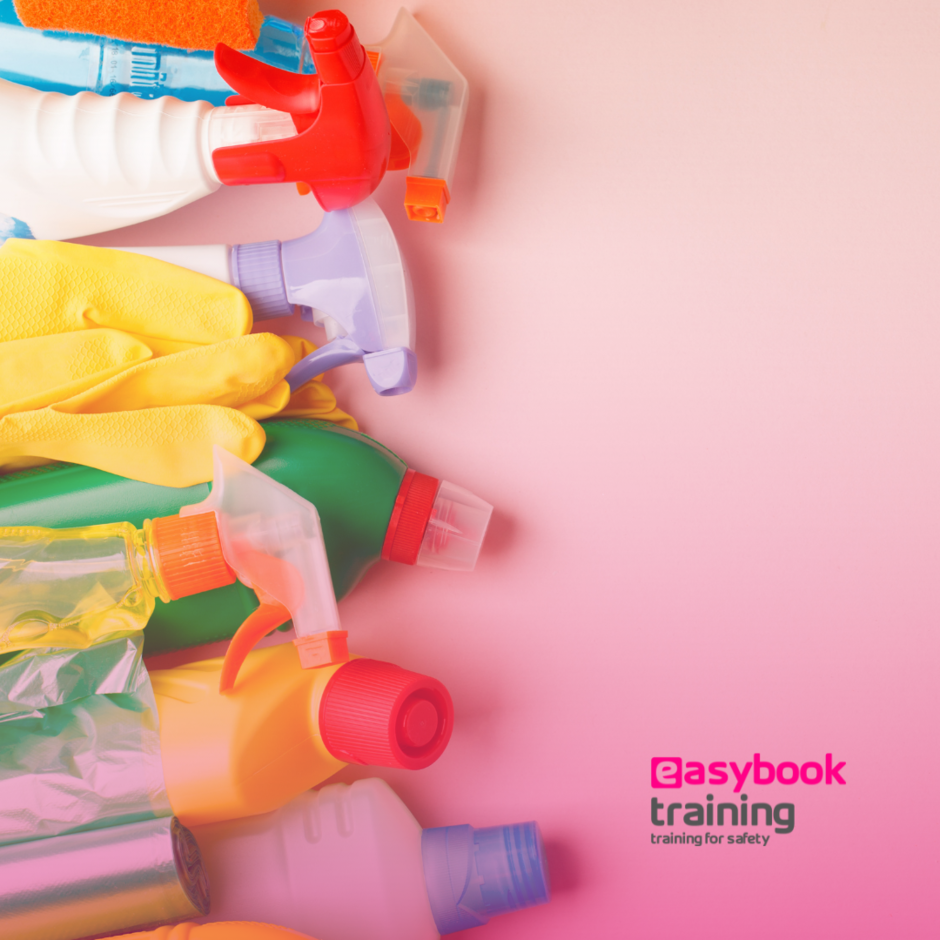
Covid-19 has had an extensive impact on the way companies do business. Employers have had to adapt their workspaces, and employees are working in new ways. One such consideration is that workplaces must be cleaned and sanitised frequently, for both the health of customers and staff.
Employees are now using hazardous substances with greater frequency, and they may not be familiar with the risks associated with those substances. This situation increases the risks associated with COSHH. Therefore, employers need to be aware of the dangers of these substances, ensure safety measures are in place, and train employees on how to use the products safely.
COSHH stands for Control of Substances Hazardous to Health Regulations 2002. Employers are required to assess hazardous substances in the workplace and control or reduce the risks associated with them. Further, employers are required to provide information and training and equipment to either reduce or eliminate risks to their staff.
Substances that may pose a threat include liquids, dust, gases, fumes, and vapours. These substances on their own may not necessarily be harmful, but mixed could create a dangerous situation. There are also activities that employees must carry out that may put them at risk.
Substances may have an immediate risk, such as a chemical burn, or may have longer-term effects, such as an increased risk of cancer. Often, the main danger comes from prolonged exposure to a substance.
Government guidance on cleaning practices has required almost all workplaces to evaluate and increase their cleaning procedures. Following these procedures can help keep people safe from catching Covid-19. Unfortunately, this means that harsher chemicals are being used more frequently, especially in high-touch areas like counters and door handles.
While an increase in cleaning procedures helps reduce the spread of Covid-19, it increases the risks associated with COSHH. This is because cleaning substances must be controlled like any other hazardous substance; otherwise, health complications can arise from their use. For example, cleaning chemicals such as bleach can irritate the eyes, mouth, lungs, and skin without proper controls.
All employers have a legal obligation to comply with COSHH. Therefore, they must complete a comprehensive COSHH risk assessment in their workplace. After the evaluation, it can be determined which controls are required to reduce or eliminate the risk the hazardous substance creates.
If an employer has added chemicals during Covid-19, it’s important that these substances are assessed. Employees must recognise the risks connected with using the chemicals and the steps they need to take to shield themselves and those around them who may be exposed.
It should also be noted that those with pre-existing lung conditions, such as asthma may be at greater risk of injury from exposure to these substances. This may affect who in the workplace should be handling hazardous substances and who should not.
Understanding how to handle hazardous materials is essential in the workplace. This requires proper training for both management and employees. Easybook Training provides comprehensive COSHH training, which not only will ensure legal compliance but keep your workers safe. Book online or reach out to our friendly customer service team today.